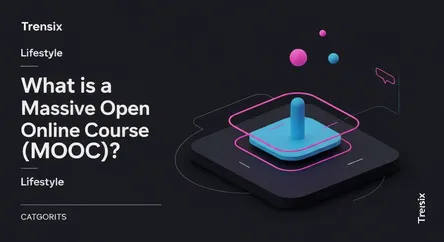Lifestyle
What is a Massive Open Online Course (MOOC)?

Discover Massive Open Online Courses (MOOCs), the trend making education from top universities accessible and affordable for everyone, everywhere.
What is it?
A Massive Open Online Course (MOOC) is a free or low-cost online course available for anyone to enroll. The term 'massive' refers to its unlimited participation, while 'open' signifies that anyone, anywhere can register. Delivered via the web, MOOCs offer a complete course experience, including video lectures, reading materials, problem sets, and interactive forums. They are often created by top universities and organizations and hosted on platforms like Coursera, edX, and Udacity. While many MOOCs are free to audit, learners can often pay a fee to receive a verified certificate upon completion, which can be a valuable addition to a resume.
Why is it trending?
MOOCs are trending due to their incredible flexibility and accessibility. They break down traditional barriers to higher education, such as cost, location, and rigid schedules. In a rapidly changing job market, MOOCs offer a practical way for professionals to upskill or reskill without leaving their jobs. The COVID-19 pandemic further accelerated this trend, as millions turned to online platforms for continuous learning and personal development. The wide range of subjects, from data science to art history, ensures there is something for every interest and career goal.
How does it affect people?
MOOCs are democratizing education on a global scale. They empower individuals by providing access to high-quality instruction from world-class institutions, regardless of their socioeconomic background. For many, this offers a pathway to career advancement, a complete career change, or simply the pursuit of a new passion. Completing a MOOC can boost confidence and demonstrate a commitment to lifelong learning to employers. It allows people to gain specific, in-demand skills quickly and affordably, making them more competitive in the workforce and equipping them to adapt to future challenges.